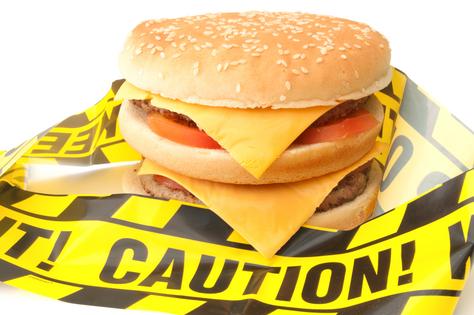Mayo Clinic Q&A: Food risks and cancer: What to avoid
Published in Health & Fitness
DEAR MAYO CLINIC: I was recently diagnosed with cancer. Are there specific foods I should be eating or avoiding?
ANSWER: It’s not about any one food, and it’s not about one diet; it’s about a dietary pattern. The dietary pattern that organizations such as the American Institute for Cancer Research and the American Cancer Society recommend is a whole-food, plant-predominant diet. The whole food component is very important to emphasize — eating foods as close to nature as possible is key, not ones made in a factory. Aim to arrange half of your plate with a diverse array of colorful vegetables and fruits, a quarter from whole grains, and the rest from healthy sources of protein, especially from plant sources.
The average American consumes at least 63% ultra-processed foods. Ultra-processed foods are factory-manufactured, packaged foods (frozen pizza, microwave meals, chips, pastries, cupcakes, muffins, processed meat, sugar-sweetened beverages). These foods often have ingredients that are hard to pronounce. Studies show consumption of ultra-processed food is linked directly to premature mortality or deaths from all causes. Cancer studies done in countries that don’t consume nearly the amount of ultra-processed foods compared to Americans show that not only do the ultra-processed foods increase the risk of cancer occurring, but after a cancer diagnosis, these foods increase the risk of mortality. When you eat ultra-processed foods, you're taking away the opportunity for your body to get nutrient-dense foods with vitamins, minerals, phytonutrients and fiber that can help fight cancer and keep it away.
Processed meat is categorized as a Group 1 carcinogen by the World Health Organization. Think hot dogs, sausage, pepperoni, bacon, deli meat and chicken nuggets. For people who eat processed meat, it is best to eliminate it. Protein sources such as tofu, edamame, tempeh, fish, poultry and pulses should be eaten more often than red meat.
What are pulses? Pulses are edible seeds from a legume plant. They include things such as lentils, peas and beans (black, pinto, kidney, chickpeas, etc.). Not only are you replacing animal protein when you consume pulses and soy, but you’ll also get a lot of fiber. And in the U.S., there’s not a protein deficiency but a fiber deficiency. Soy foods are safe for all cancer patients and are an excellent source of plant protein. Studies show soy may improve survival after breast cancer.
Fiber is an essential nutrient, but only 5% of Americans get enough. A recent meta-analysis from the American Institute for Cancer Research Global Cancer Update Program showed that for every 10-gram increase in fiber in the diet, survival after breast cancer diagnosis improved by 13%. Health benefits of fiber include improved cholesterol, blood sugar regulation, gut health and digestion and weight control. Additionally, nuts and seeds have healthy, fatty acids that your body needs and are a great source of fiber and protein. But they are also calorie-dense, so be mindful of the serving size.
Aim to cut out ultra-processed foods and consume mainly whole, plant-predominant foods:
You can have a role in your cancer journey when you think of food as medicine, and that's exciting and empowering. — Dawn Mussallem, D.O., Integrative Medicine and Health, Mayo Clinic, Jacksonville, Florida
(Mayo Clinic Q & A is an educational resource and doesn’t replace regular medical care. This Mayo Clinic Q&A represents inquiries this healthcare expert has received from patients. For more information, visit www.mayoclinic.org.)
©2025 Mayo Foundation for Medical Education and Research. All Rights Reserved. Distributed by Tribune Content Agency, LLC.










Comments